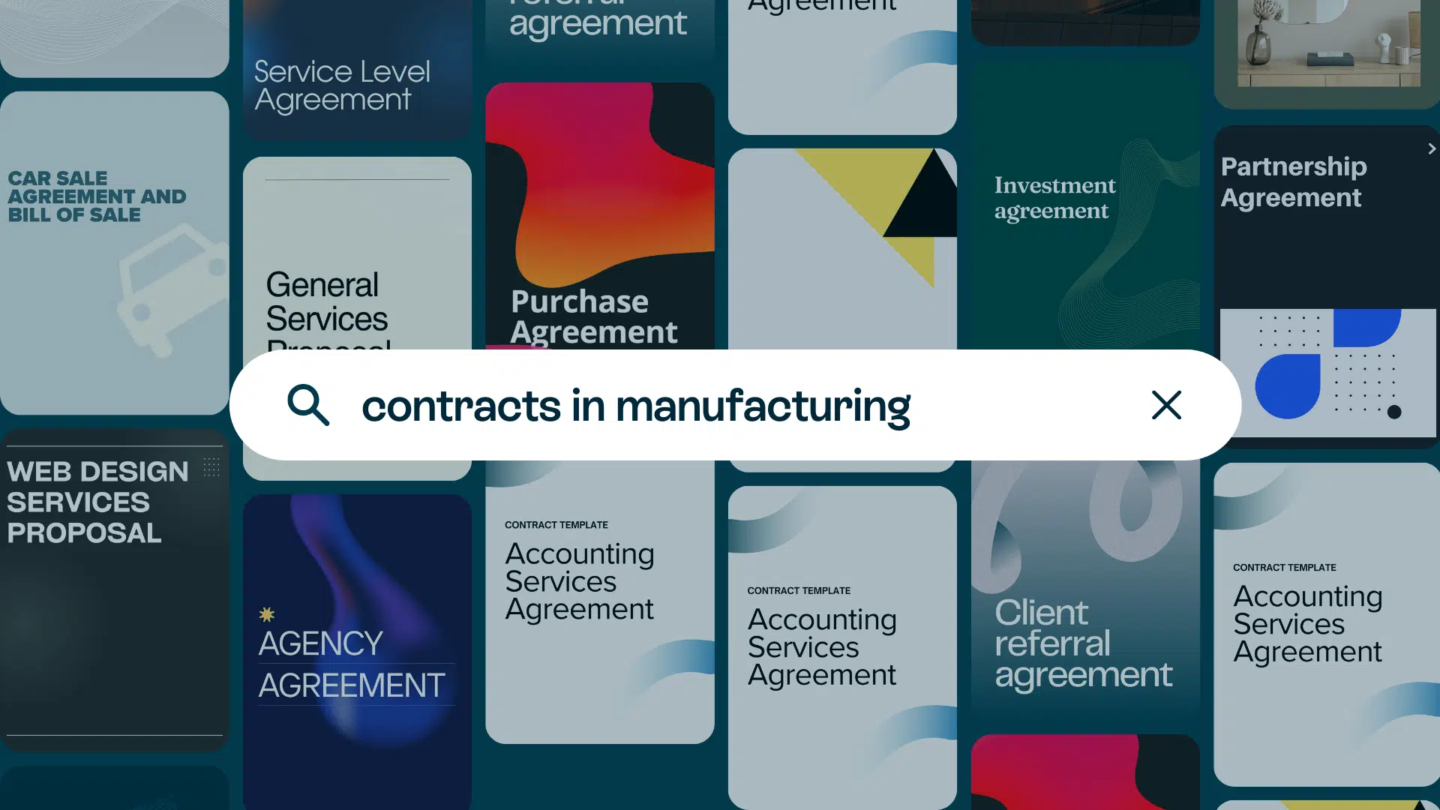Contract intelligence is a groundbreaking technology that has revolutionised the way organisations manage their contracts. It harnesses the power of artificial intelligence (AI) to automate and streamline contract management processes, enabling businesses to gain valuable insights from their contracts and make informed decisions.
In this article, we’ll delve into the basics of contract intelligence, explore the role of AI in its implementation, highlight the benefits it brings to businesses, discuss how to successfully implement it in organisations, and finally, uncover the key performance indicators (KPIs) to measure its success. So, let’s embark on this journey to unravel the world of contract intelligence.
Understanding the basics of contract intelligence
Definition and importance of contract intelligence
At its core, contract intelligence refers to the use of AI technologies to extract relevant information from contracts, enabling organisations to gain a deeper understanding of their contractual obligations, risks, and opportunities. By leveraging contract intelligence, businesses can transform their contracts from static documents into actionable insights that drive strategic decision-making.
Contract intelligence holds immense importance in the business world today. Contracts are the backbone of any enterprise, governing vital aspects such as partnerships, sales, procurement, employment, and compliance. However, the sheer volume and complexity of contracts often make it challenging for organisations to analyse and leverage their contract data effectively. Contract intelligence solves this problem by automating contract analysis, reducing manual effort, saving time, and ensuring accuracy.
Key components of contract intelligence
Contract intelligence comprises three key components: contract extraction, contract analytics, and contract lifecycle management.
Contract extraction involves the automated extraction of contract data from various contract documents such as PDFs, Word files, and scanned images. AI-powered algorithms enable the identification and extraction of critical contract information, including parties involved, obligations, payment terms, and termination clauses.
Once the data is extracted, contract analytics enables organisations to gain valuable insights from their contract portfolio. This includes identifying trends, risks, and opportunities, tracking contract performance, and benchmarking contract terms against industry standards.
Finally, contract lifecycle management involves managing the entire contract lifecycle, from creation to renewal or termination. Contract intelligence systems provide tools for workflow automation, contract authoring, collaboration, and digital signatures, ensuring seamless contract management, and reducing administrative burden.
Read also: Introducing Write with AI (Beta)

The role of AI in contract intelligence
How AI enhances contract intelligence
AI plays a vital role in enhancing contract intelligence by automating traditionally manual and time-consuming tasks. Advanced machine learning algorithms enable the recognition of patterns and language understanding, allowing contract intelligence systems to extract relevant information accurately and efficiently.
With AI, organisations can overcome the challenges of analysing large volumes of contracts and identifying crucial data points. AI algorithms can quickly identify and categorise clauses, terms, and conditions, enabling organisations to gain comprehensive insights into their contract portfolio.
Furthermore, AI enhances contract intelligence by facilitating natural language processing (NLP) capabilities. This means that contract intelligence systems can interpret and understand contract language, identify potential risks or discrepancies, and provide recommendations for contract revisions or negotiations.
The future of AI in contract management
The future of AI in contract management looks incredibly promising. As technology continues to advance, AI algorithms will become even more sophisticated and capable of handling complex contract analytics tasks. Contract intelligence systems will evolve to provide real-time monitoring and alerts for critical contract events, empowering organisations to proactively manage risks and seize opportunities.
Moreover, we can expect AI to play a significant role in automating contract negotiation and creating smart contracts. These contracts will be self-executing and self-enforcing, based on predefined conditions and triggered by real-time data. Smart contracts have the potential to revolutionise legal agreements, ensuring efficiency, accuracy, and transparency.
Read also: Enhancing compliance through AI contract management

Benefits of contract intelligence in business
Streamlining contract management processes
One of the primary benefits of contract intelligence is the streamlining of contract management processes. By automating contract extraction and analytics, organisations can eliminate the tedious manual effort involved in reviewing and organising contracts. This significantly reduces the time spent on administrative tasks, allowing contract managers to focus on more strategic activities.
Furthermore, contract intelligence enables organisations to gain a holistic view of their contractual obligations, helping them identify potential risks, bottlenecks, or discrepancies. This empowers businesses to take proactive measures, such as renegotiating unfavourable terms or addressing compliance issues, ultimately reducing costs and legal risks.
Risk mitigation and compliance
Contract intelligence plays a crucial role in risk mitigation and ensuring compliance with regulatory requirements. Through automated contract analytics, businesses can identify high-risk clauses, such as termination or indemnification provisions, and address them proactively. Contract analytics also enables organisations to monitor key contract milestones, such as renewal or expiration dates, ensuring timely action and avoiding any legal or operational pitfalls.
Moreover, contract intelligence helps organisations stay compliant with industry regulations, standards, and internal policies. By providing a centralised repository for contracts and enabling easy access to critical contract data, organisations can quickly respond to audit requests, manage obligations, and demonstrate compliance to regulatory authorities.
Implementing contract intelligence in your organisation
Steps to adopt contract intelligence
Implementing contract intelligence in your organisation involves a systematic approach. The following steps can guide you in adopting contract intelligence successfully:
- Evaluate your contract management processes and identify pain points or areas that can benefit from automation.
- Select a reliable contract intelligence solution that aligns with your organisation’s needs and objectives. Consider factors such as AI capabilities, ease of integration with existing systems, and scalability.
- Develop a comprehensive implementation plan, outlining the timeline, resources required, and key milestones.
- Prepare your contract data for automation by ensuring it is structured and accessible. This may involve digitising paper-based contracts, organising electronic files, or consolidating contract repositories.
- Configure the contract intelligence system based on your specific requirements. This includes defining contract metadata, establishing data validation rules, and configuring analytics dashboards.
- Train your contract management team on utilising the contract intelligence system effectively. Ensure they are well-versed in performing tasks such as contract extraction, analytics, and lifecycle management.
- Pilot the contract intelligence system with a select group of contracts to ensure its functionality and scalability. Use feedback from the pilot phase to fine-tune the system before full-scale implementation.
- Roll out the contract intelligence system across the organisation, closely monitoring its performance and user adoption. Continuously collect feedback from users and stakeholders to drive improvements and address any challenges.
Overcoming challenges in implementation
Implementing contract intelligence may come with certain challenges, but with the right approach, these can be overcome. The key challenges organisations often face during implementation include resistance to change, integration complexity, data quality, and security concerns. It is crucial to address these challenges by involving stakeholders, providing training and support, and ensuring data integrity and confidentiality.
Read also: Top AI contracting software tools: Streamline your processes and boost efficiency

Measuring the success of contract intelligence
Key performance indicators for contract intelligence
Measuring the success of contract intelligence requires establishing key performance indicators (KPIs). Here are some essential KPIs that can provide insights into the effectiveness of your contract intelligence implementation:
- Contract cycle time: Measure the time taken to create, negotiate, approve, and execute contracts. A decrease in cycle time indicates increased efficiency and productivity.
- Contract compliance: Assess the extent to which contracts adhere to predefined standards, including regulatory requirements and internal policies. Compliance KPIs can highlight potential bottlenecks or areas of improvement.
- Risk mitigation: Monitor the identification and mitigation of contract-related risks. This includes tracking the resolution of high-risk clauses, addressing compliance issues, and minimising legal disputes.
- Cost savings: Measure the cost savings achieved through contract intelligence. This can include reductions in administrative costs, legal expenses, and penalties due to non-compliance.
Continuous improvement and optimisation
Contract intelligence is not a one-time implementation; it requires continuous improvement and optimisation to maximise its benefits. Regularly reassess your contract management processes, evaluate the performance of the contract intelligence system, and leverage user feedback to drive enhancements. This iterative approach ensures that your organisation stays at the forefront of contract management practices and effectively harnesses the power of contract intelligence.
Now that you have gained a comprehensive understanding of contract intelligence, its implementation, and the benefits it brings to businesses, you are ready to embark on your journey towards transforming your contract management processes. The future of contract intelligence looks promising, with AI technologies continuously evolving to provide even greater insights and efficiencies. Stay ahead of the curve, embrace contract intelligence, and unlock the full potential of your contracts.







